Search Results
Showing results 121 to 140 of 170
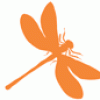
Go Bug!
Source Institutions
By playing a card game similar to "Go Fish," but based on the stages of metamorphosis, learners will be able to see how insects change in form as they grow and will consider the advantages of undergoi
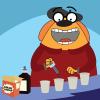
Tempest in a Teacup
Source Institutions
In this hands-on activity, learners determine the types of chemical reactions achieved when combining different household products.
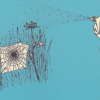
Web Weavers
Source Institutions
In this outdoor science/art activity, learners investigate spider webs by using string to create their own spider webs.
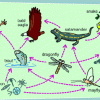
What's for Dinner?
Source Institutions
In this activity (page 5 of the PDF), learners will create a food web and explore food sources for different organisms. They will identify relationships between organisms in an ecosystem.
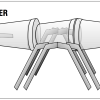
Minibeast Models
Source Institutions
In this activity, learners create models of bugs. Learners use household materials like plastic cups and straws to create models of bugs like centipedes and spiders.
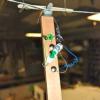
Canjo
Source Institutions
In this activity, learners explore sound by constructing their very own banjo out of a coffee can. Learners experiment with the canjo to change the instrument's pitch and timbre.
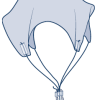
Sky Diver
Source Institutions
Students design and build their own parachutes in this hands-on engineering project.
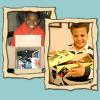
Create Your Own Time Capsule
Source Institutions
In this archaeology-related activity, learners build their own time capsule and choose a storage location and a date to reopen it.
Tropical Belt
Source Institutions
This lesson familiarizes learners with the term "tropical belt." First, learners locate the equator, Tropic of Cancer and Tropic of Capricorn on a map and trace these lines with a crayon.
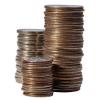
How Much is a Name Worth?
Source Institutions
In this math lesson, learners use simple addition facts to compute values (in dollars and cents) for their names.
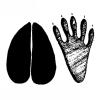
Bring It Home: Animal Tracks
Source Institutions
In this activity, learners create handmade animal track stamps. Learners research animal tracks, draw the shapes on moleskin, and then stick the shapes onto blocks of wood to make stamps.
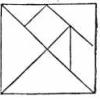
Tricky Tangrams
Source Institutions
In this activity (on pages 49-54 of PDF), learners play with tangrams, a set of triangles, squares and a parallelogram that can combine into a larger square as well as all sorts of other shapes.
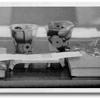
Paper Bridges
Source Institutions
In this activity, learners build bridges using paper and explore how much weight each bridge design can support.
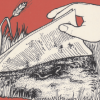
Junk-in-the-Box
Source Institutions
In this outdoor activity, learners explore how a surprising number of animals use human-made litter, such as cans and crumpled paper, to find food and shelter in their environment.
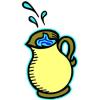
Aesop's Arithmetic
Source Institutions
In this activity (located on page 9 of the PDF), learners are introduced to Aesop's fable, "The Crow and the Pitcher." In the story, a clever crow drops pebbles into a pitcher to cause the water level
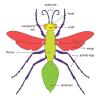
Invent an Insect
Source Institutions
In this creative activity, learners will find out what makes an insect an insect by studying examples of insect adaptations and by examining why there are so many different types of insects.
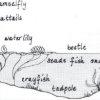
Habitats of the Pond
Source Institutions
In this outdoor activity/field trip, learners locate and study plants and animals in several freshwater pond habitats.

Make a Garbage Bag Kite
Source Institutions
Make a kite out of a garbage bag, shower curtain, painting tarp--anything light, thin, flexible and plastic!

Toy Chemistry
Source Institutions
In this playful, goopy activity, learners mix two liquids to create a solid (that sometimes acts like a liquid ), using basic household materials such as borax and glue.
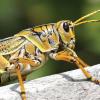
Invent an Insect
Source Institutions
In this creative activity, learners will find out what makes an insect an insect by studying examples of insect adaptations and by examining why there are so many different types of insects.
